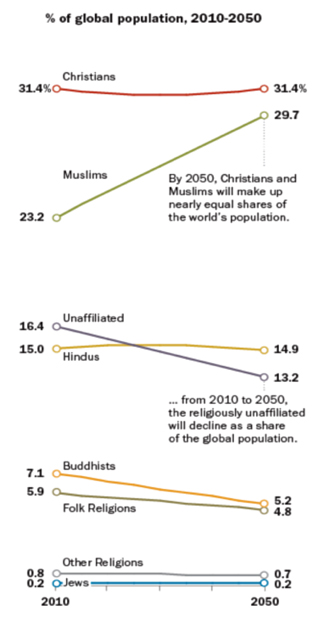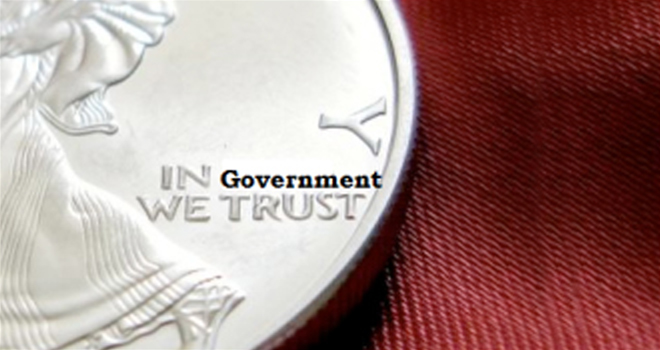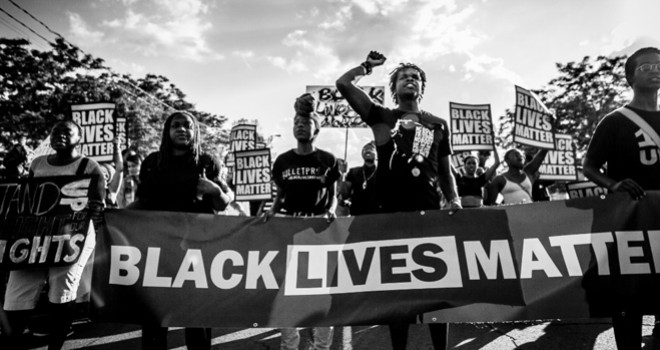January 28, 2017 | PASTOR ZACHARY PUDLO
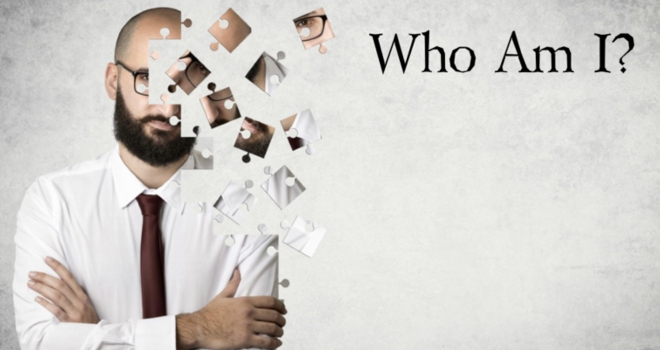
The protests and violence over the inauguration weekend really struck me. One of the boasts of our country and our generation is that we are inclusive. And yet with all the riots, name calling, mocking, hate-speech, etc…that we have seen over the past months and years, it seems like we aren’t as inclusive as we’d like to think we are. What has lead us to this point in history where we hear cries of “Peace! Love! Acceptance!” But then we see and hear in the news that there has been another mass shooting, another riot gone bad, another person killed because of their personal beliefs. Even Christians are guilty of crying out “Peace! Love! Acceptance!” And then are heard saying things quite the opposite, posting things far from it, and withholding prayers for it. How have we gotten to this point? Our personal identities are huge factors in the way we treat other people.
Identity Formation
Outward identity formation takes place in many traditional cultures. The sense of self and worth is dictated to you by others, and often times by your family. Imagine a young boy whose name is Tom Baker. His father, grandfather, and great-grandfather before him were all bakers, the best in the village. The gift of baking ran through their blood and everyone knew it. Everyone came to them for their bread and pastries. As a young boy Tom felt immense pressure to live up to the Baker name. If he didn’t then his whole life would be a failure. That’s how outward identity formation works. It is constantly looking to others for a sense of purpose and worth. It needs affirmation from something outside of itself.
Even though that isn’t the primary form of identity formation within our western culture, it still is prevalent. Just consider the kind of pressure some parents still put on their children. As children are asked to put in hours of homework each night, all the while excelling in sports and extracurriculars how are they going to feel if they don’t live up to their parents’ expectations? The external pressure is there, and with that comes an identity formation.
Inward identity formation is the exact opposite. Our western cultural view on identity says, “I don’t care what other people think about who I am. I’m not going to let others dictate to me how I should look, think, or act. I am going to be who I want to be.”
Inward identity formation looks to noone else for validation. You give significance to yourself. The only thing that matters is looking deep into your own heart and discovering what you really want. Don’t let others dictate to you who you should be.
Just be yourself. Isn’t that the cry of our culture? “You be you.” “Just be yourself.” “Nonconformity.” It’s about stepping away from the pressures of outsiders trying to make you live up to a certain expectation. Elsa summarizes it well when she sings:
Just be yourself. Isn’t that the cry of our culture? “You be you.” “Just be yourself.” “Nonconformity.” It’s about stepping away from the pressures of outsiders trying to make you live up to a certain expectation. Elsa summarizes it well when she sings:
 It’s time to see what I can do
It’s time to see what I can doTo test the limits and break through
No right, no wrong, no rules for me,
I’m free!
Identity Exclusion
But there is a problem with each of these forms of identity. They are prone to an exclusive treatment of others. Consider Tom Baker again as it relates to outward identity formation. He would have received immense pressure not only from his direct family, but also the entire village. “Tom is a Baker, and he can’t even bake?” the villagers would murmur in the streets. Tom would become the laughing stock of his family and the whole village if he didn’t live up to his name. In outward identity formation, if you don’t live up to the expectations of the outsiders you will be treated as an outsider. You will be mocked and ridiculed. You may even be entirely excluded from your family.
The same is actually true of inward identity formation. In The Illusions of Postmodernism Terry Eagleton writes, “For all its vaunted openness to the Other, postmodernism can be quite as exclusive and censorious as the orthodoxies it opposes.” He’s saying postmodernism preaches being open and inclusive to everyone…accept people for who they are no matter how they identify. And the postmodern culture does just that. They accept every single person for who they are…that is, unless you don’t hold to that same core value. If you are part of a group that is exclusive and isn’t open to everyone, then you are wrong. If you exclude anyone then you yourself will be excluded by this culture. Ironically, inward identity formation is just as exclusive as outward.
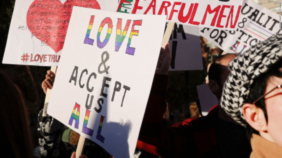 And it’s exclusive in another way as well. When you find a sense of self and worth by looking inward, then your own individual interests prevail over all else. It even ranks higher than any and every social tie. Your Self becomes more important than friends, spouse, even family. When familial communities break down, people begin to connect in groups or “social networks” of people who are like themselves. Family, marriages, society begin to crumble into warring sects or parties…each one screaming, “Be more loving! Be more like us!” at the others.
And it’s exclusive in another way as well. When you find a sense of self and worth by looking inward, then your own individual interests prevail over all else. It even ranks higher than any and every social tie. Your Self becomes more important than friends, spouse, even family. When familial communities break down, people begin to connect in groups or “social networks” of people who are like themselves. Family, marriages, society begin to crumble into warring sects or parties…each one screaming, “Be more loving! Be more like us!” at the others.An Inclusive Solution
It appears that both inward and outward identity formation have their problems. But there is a third solution…and upward identity formation, an identity formed by God. I fully recognize that this is where many will be skeptical. How can we possibly claim that adding religion into the identity formation will lead people to be less exclusive when there is so much division caused by religion? I can’t tell you how many times I have heard it said that Christianity is just another religion promoting moral behavior and is just as exclusive as any other religion. But that cannot be any further from the truth.
I would point you to the statistics that show that Christianity is the only worldwide religion, the only religion that is truly embracing of every culture and background. Over 90 percent of Muslims live in Southeast Asia, the Middle East, and Northern Africa. Over 95 percent of Hindus are in India and the surrounding areas. Almost 90 percent of Buddhists are in East Asia. And yet Christianity is spread out all across the globe, 25 percent in Europe, 25 percent in Central and South America, 22 percent in Africa, 15 percent in Asia and 12 percent in North America.
Christianity clearly displays far more tolerance for cultural diversity than any other religion. That’s because the Christian identity does not come from conforming to cultural norms, or from looking inward. And opposed to every other religion it certainly doesn’t come from obeying rules. It doesn’t come from any moral success. If it did, then the Christian identity would be just as fragile and exclusive as every other form of identity formation.
As an educator I still see this in the classroom. Some children find their sense of self and worth in their moral successes. They find their confidence in their personal track record in keeping all the classroom rules. But those who base their identity on their record of keeping the rules not only are crushed when they do end up breaking the rules, but they also treat those who regularly break the rules with a sense of superiority. They tend to be exclusive towards those who aren’t as morally upright as they are.
While some people who call themselves Christians still act this way by treating people poorly who have a lower moral standard, it certainly isn’t the Christian teaching on identity. The Bible says all people are created in God’s image (Genesis 1:26-27). That means that it doesn’t matter what your race, gender, social status or moral behavior is. God created all and loves all. And even more than that God shows that he treats all people with sacrificial love. “But God demonstrates his own love for us in this: While we were still sinners, Christ died for us.” (Romans 5:8) This means that despite the fact that we are truly outsiders and outcasts in God’s eyes, he still loved us. He didn’t treat us differently because of our moral failures. No one has the right to tell you who you are or who you should be, not even yourself. God alone can give you your identity.
Do you see how the Christian God alone can give us an identity that doesn’t lead to exclusion? He tears down any feeling of superiority by reminding us that we are so flawed and guilty that the only payment for our failures was the life and death of the Son of God. And yet he builds up our sense of worth by showing us we were worth that very payment, the life and death of the Son of God.
If this is true, how could any of us possibly treat any other human being with less love than the creator God who died for his own creatures?
If you build your identity on what Jesus Christ did for you, you cannot feel superior to anybody. In fact, you have no need to compare yourself to anybody else because your identity is based on a God who was excluded and cast out for you. That will turn you into someone who finds confidence in something immovable, embraces the excluded and loves the different.



